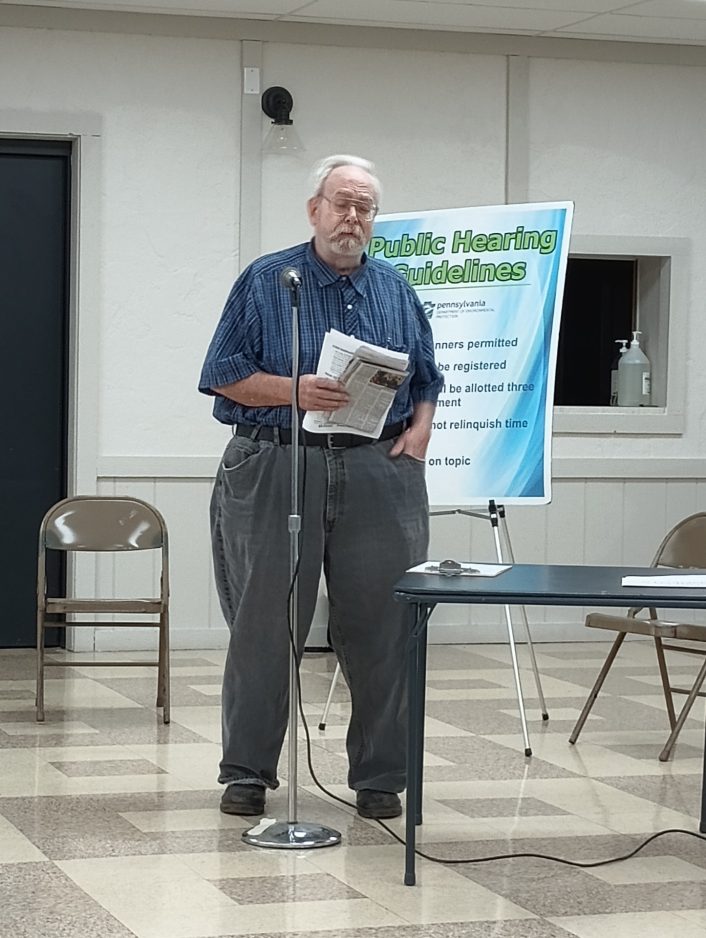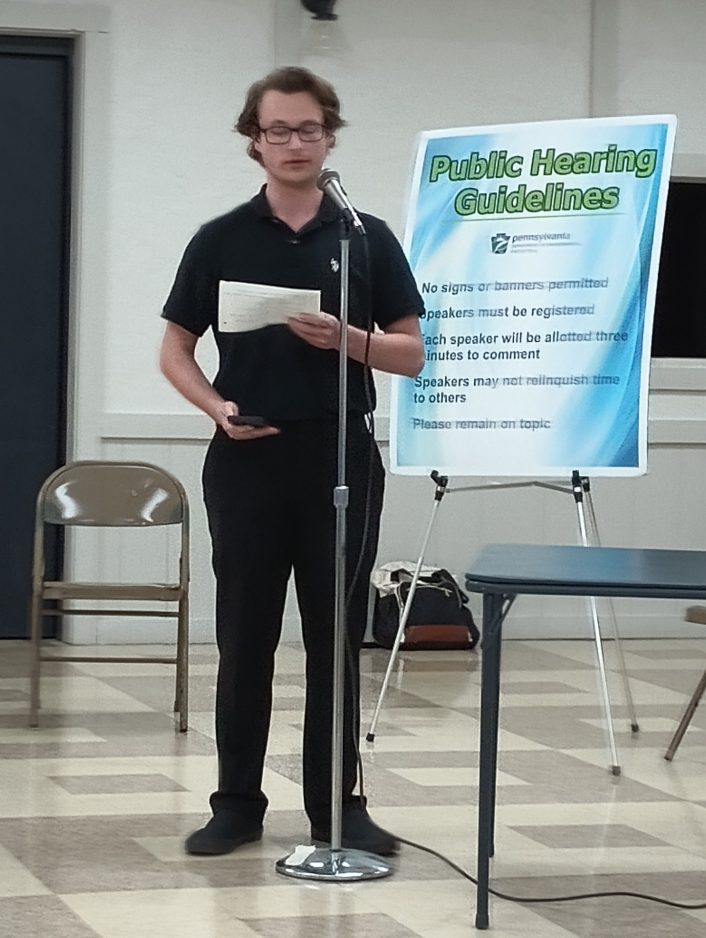Mon Valley residents speak out against landfill permit request
Westmoreland Sanitary Landfill’s request to discharge treated waste into the Monongahela River was met with opposition during a hearing Thursday at Rostraver Central Fire Department social hall.
Twenty people spoke out against the state Department of Environmental Resources granting a National Pollutant Discharge Elimination System permit, citing concerns about potential impacts to the water supply. The river serves as a source of drinking water for thousands of residents and is part of the headwaters to the Ohio River basin, which provides drinking water to about five million people.
The landfill, owned by Noble Environmental, applied for the permit last June.
The National Pollutant Discharge permits regulate certain amounts of pollutants to be discharged into waterways, such as the Monongahela River. Leachate is described as a liquid that has come in contact with waste material. The liquid, which is generated at landfills, can pick up contamination that must be continually removed and treated.
DEP Southwest Region representatives on hand Thursday included Curt Holes, lead reviewer/environmental engineer; Mike Fifth, environmental engineer manager, and Eric Gustafson, regional director.
Kristen Jackson, of Belle Vernon, expressed concern about potential impacts to the people and property in the area.
“I’m concerned about the effects it will have on my family’s health, the water supply, the wildlife, the soil in my backyard and the environment,” she said. “I’m not sure how or why DEP would even consider issuing Noble Environmental a permit to process hazardous waste, given its history of violation or fines for not handling the polluted liquid waste properly. I’m concerned the landfill operators are not capable of handling toxic waste safely.”
Jackson said her son, Casey, who enjoyed hunting in the area, died of Ewing sarcoma 12 years ago at the age of 21. She wondered if contaminants in the area could have been the cause.
“A cause of this rare cancer has yet to be found,” she said. “There have been numerous cases of this childhood cancer in Southwestern Pennsylvania and many believe it can be related to fracking and the toxic waste it produces … I don’t know where the owners of Noble Environmental live, but I have a feeling it isn’t anywhere near the Speers Run Stream or the Rostraver Landfill and they can go home to a safe environment and sleep soundly and not live in fear that their health, their family’s health or their neighborhood is potentially being destroyed by toxic waste.”
Representatives of environmental organizations Protect PT and Three Rivers Waterkeeper were also present to voice their opposition to the request, referring to the landfill operator’s previous fines and violations.
Gillian Graber, executive director of Protect PT, said, “We are deeply concerned about their ability to adequately treat their leachate so that the Monongahela River is not impacted.”
“The landfill has a known issue with compliance and not containing their toxic waste within the landfill,” said Heather Hulton VanTassel, executive director of Three Rivers Waterkeeper. “We need stricter permit regulations and meaningful enforcement of violation to the Clean Water Act to prevent future pollution and harm.”
Debbie Fought cited a report from John Stolz, a professor at Duquesne University, who also spoke Thursday night, that stated chemicals such as chlorides, bromides, and radium would be discharged into the water.
“I don’t understand these words, but I know I don’t want to breathe them or drink them,” she said.”
Allen Rost, a Speers resident, claimed the DEP has not established a maximum flow rate or volume of leachate that is allowed to be put into the river.
“The river is running low, and they continue to put more in, concentration levels go up and it doesn’t flow, it doesn’t disperse, it doesn’t diffuse,” Rost said. “They don’t have a plan for both continuous and random sampling monitoring of this fracking leachate. They have it for other things but it needs to be much more robust than it is for the standard landfills. These leachates will damage and possibly kill the river ecosystem as well as the adjacent land ecosystem for miles along its bank.”
Steven Collinet, 17, a junior at Belle Vernon Area High School, expressed his opposition to the permit and potential implications for future generations.
“We the youth of Rostraver Township are bothered and will be surely affected by the mistreatment of sewage being placed in the waters we drink, swim and fish in,” he said. “For our future, let there be cleanliness for us all.”
A copy of Thursday’s testimony will be made available once it is prepared. Comments will continue to be taken until the close of business April 3.
Comments can be sent via email to ra-epnpdes_swro@pa.gov. They also may be mailed to DEP Southwest Regional Office, in care of Clean Water Program, 400 Waterfront Drive, Pittsburgh, Pa., 15222.




